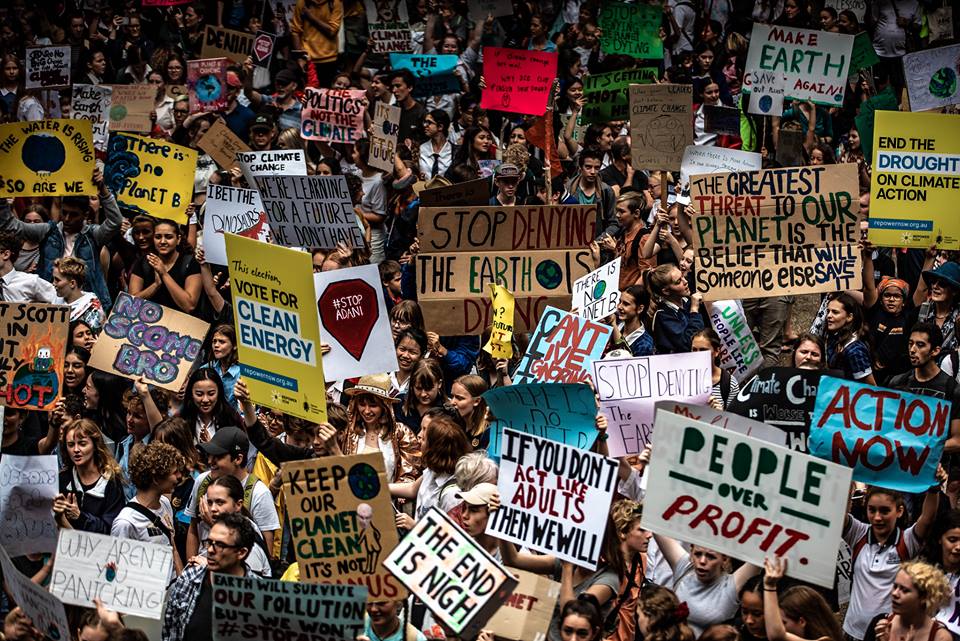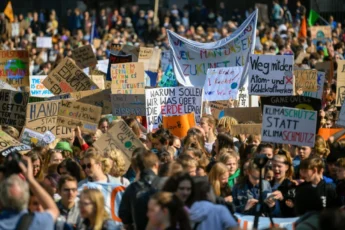
Report of a transnational meeting hosted by TSS
The impending climate catastrophe and its social and economic consequences have driven the growth of movements for climate justice for years. After a stop caused by the pandemic, the mobilizations and People’s summit during the Cop26 in Glasgow have shown the strength of a new movement that brings together activists from across the globe, and points to possible new connections between climate activists and labour movements. At the same time, governments and businesses are pushing investments and policies that are prompting new forms of accumulation and exploitation under the label of green transition.
After Cop26 many felt the urgency to relaunch the perspective of a shared vision and common political initiatives in the fight against the impending climate catastrophe and the social and economic consequences of the green transition. Moved by this urgency, we started a process of collective discussion and organization.
On Sunday 5th December the TSS hosted a meeting participated by activists and trade unionists from Germany (TopBerlin, Klassenkampf and Klimaschutz), UK (Plan C, Stop SilverTown Tunnel), Sweden (Ållt at Ålla), Poland (Workers’ Initiative), Czech Republic (Budoucnost), Bulgaria (LevFem, Konflikt), Italy (Precarious Dis-connections) and France (Réseau Eco Syndicaliste). The goal of the meeting was to start reflecting on a transnational strategy to intervene in the growing movement for climate justice and to tackle the problem of overcoming the tensions between the defense of climate and the lived experiences and daily conditions of workers.
The opposition between workers’ and climate struggles is partly fabricated to prevent connections that can jeopardize governments plans, and partly the product of the fact that the green transition is designed as a profit-driven neoliberal endeavor, having devastating effects on working and living conditions. The first thing we recognized is that we need to understand how to overturn these divisions, by throwing light on the links between seemingly disparate problems and struggles, and by forging common transnational demands that avoid false alternatives between climate and social justice.
The “green” transition is occupying the center of political struggles between parties and the electoral propaganda; is at the core of national and supranational plans for post-pandemic recovery; with huge amounts of money being invested, it sets the pace to projects of industrial restructuring and reforms of the energy sector. It is therefore having a wide range of impacts on living and working conditions for everyone.
While the transition takes very different shapes in different countries, new and important distinctions are appearing. Such are the opposition between the more international ‘green’ capital and local realities across the continent. In Western Europe factories are delocalizing to Eastern European countries, using the green transition as an excuse to fire workers more easily and look for lower wages elsewhere. In countries like Bulgaria, Poland and the Czech Republic, while miners are under attack, the mine closures are presented by governments as a way to create a more “business friendly environment” thanks to the possibility to offer low wages. The green transition is part and parcel of the neoliberal agenda, striving to attack the most unionized sectors, liberalizing Western investments and making profits out of the low wages and precarious conditions of workers. This recalls all too well the past transition to a market economy after ’89 and is fueling anti-EU positions.
At the moment these questions are vocalized mostly by right-wingers, while the need to defend workplaces and living standards is used to negate the need to take action on climate. The rise of nationalist discourses in many countries is instrumentalising the climate issue, by fabricating false oppositions while they exploit national pride to silence the same workers they pretend to represent. In fact, both right wing and liberal democrat discourses sustain the dismantling of social policies and unequal distribution of wealth in favour of market driven provisions of social services. At the same time, the climate struggles run the risk of endorsing the neoliberal agenda if they uncritically demand climate action but fail to oppose the consequences of green transition for millions of workers in the world.
A crucial issue that was raised in the discussion concerns the increase in energy costs, which relates not only to production and transport but has also a huge impact on basic needs such as heating. The dismissal of mining sites means an increased dependency on foreign energy supplies for countries such as Bulgaria that relies mainly on coal to produce energy. As the recent energy crisis has shown, coal phase-out in countries such as Germany and the UK has made their societies more dependent on gas imports since greener technologies cannot yet provide a reliable alternative. That has meant that decarbonization has come at a significant price due to increased global gas demand – a price that has been borne by the impoverished communities who now have to pay high energy bills on the free market. The liberalization of the energy sector imposed by the EU means also privatization and higher costs, no matter how ecological the new energies will be, and this means that hundred thousand people will not be able to properly heat their homes. As the energy problem shows, welfare and social reproduction are highly affected by transnational dynamics and EU regulations around green transition.
These differences between East and West cannot be grasped by discussing alleged clashes of civilization, political culture or mere geopolitical dynamics. Instead, they should be seen as a new wave of structural transformations that threaten to consolidate the positions of international capital while creating new hierarchies of exploitation enforced on poorer countries. In fact, while sometimes the discussions around these issues seem to concern different countries as if they were watertight compartments, production chains and migrant labor shows the structural connections that produce a transnational labor market based on wage and welfare hierarchies. We thus need to raise the question “who pays for the transition?” keeping in mind this transnational, differentiated but integrated picture. We need to escape from a simply defensive position in the light of the neoliberal character of the green transition, as well as avoid neglecting the contradictions of environmental policies just because these are instrumentalized by the far right, and instead advancing our strategy for attacking those who will make profit out of it. At the same time, we need to strengthen the existing connections between different conditions and pave the way for new ones to foster a transnational collective movement. What kind of enemies can we detect? Which companies can we attack? How can we, as unionists, activists and workers, struggle for improving living standards and against the attack on workers while at the same time bringing to the fore the fight for climate justice?
Another online meeting will take place in the near future in order to continue this discussion. All are welcome! Stay tuned for more info.





